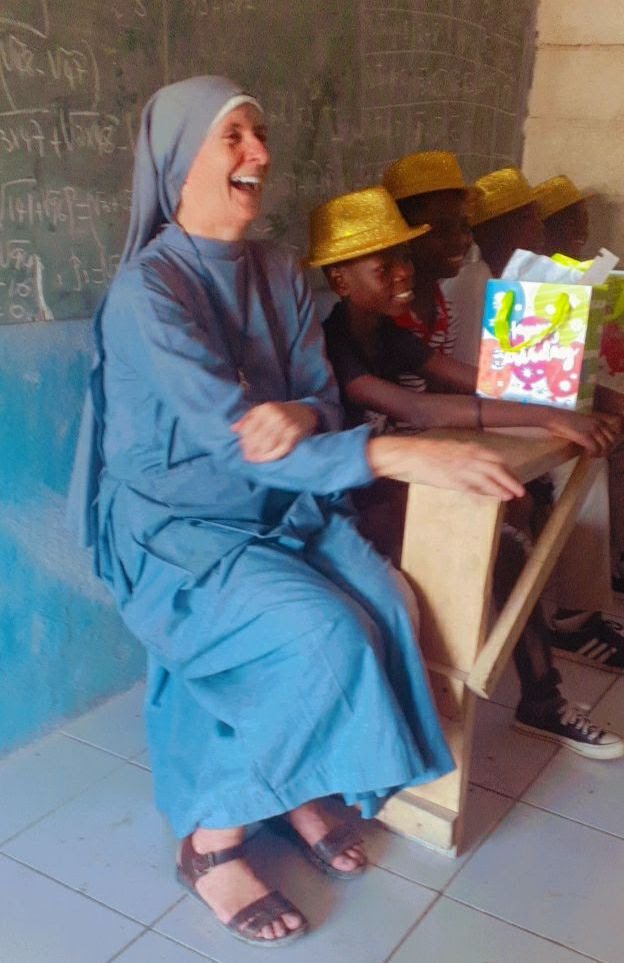Sister Paesie, born Claire Joelle Phillipe in the city of Nancy in the region of Lorraine, France, is the third child in a family of eight. Raised in a devout and faith-filled home, Claire first felt called to religious life when she was eight or nine years old but realized it more clearly at the age of fifteen.
Like so many, Claire knew of Mother Teresa’s work and dedication to serving the poor. She was drawn to the Missionaries of Charity, with no thought of joining another community, because of her strong desire to spend her life loving Jesus by loving the poor. Claire’s entrance date into the Community, by coincidence, was on her eighteenth birthday. Her formation began in England, where she remained for six months, followed by a year in Italy before going to then Communist Poland for her novitiate. She made her final vows in 1996.
After various missions around the world, Sister Paesie’s service as a Missionary of Charity took her to Haiti in 1999. While her work there as a member of the Community continued, Sister felt she was being called to leave and begin another religious community. It would be ten years before she would actually do so. In 2017, with a calling to protect street kids, among the most vulnerable of the vulnerable, from hunger, gang violence, vice, and Godlessness, Sister left the Missionaries of Charity to begin the Kizito Family, a new religious community named in memory of a fourteen year old Ugandan martyr. On June 3, 2018, the Kizito Family received approval from the Archbishop of Port au Prince as a Pious Association of the Faithful. This step is the first to establishing a religious community at the diocesan level. Because this recognition was given for a period of six years ad experimentum it is subject to renewal. Sister remains under her vows as a Missionary of Charity.
Meet Sister Paésie.
Sister Paesie’s commitment to the Kizito Family mission (i.e. protecting, feeding, educating, and evangelizing the poorest children in the ghettos of Port au Prince) is evident in how and where she and members of the Community serve. In Cite Soleil, a slum area, street children can attend the free schools set up there for them, as can those in the Village de Dieu, where the religious community has one school. Five homes, located in Delmas, Lizon, Sarthe, and Village des Repatries in Cite Soleil, provide shelter and a safe haven for those who have neither. Additionally, the Kizito Family ministers in prisons and in locations according to circumstances and need. Currently that takes members of the Community to a public square where children numbering about one thousand have taken refuge. It is in the poorest and most dire and desperate of situations that the Kizito Family lives out its mission and serves.
Sister Paesie’s own words best echo the persistent calling she heard and was unable to ignore:
“After eighteen years in Haiti, I had become increasingly aware of the importance and urgency of supporting children and young people in slums in order to protect them against the dangers associated with violence, the immorality and corruption which surrounds them, and which too often sweeps them along like a torrent which may seem irresistible.”





